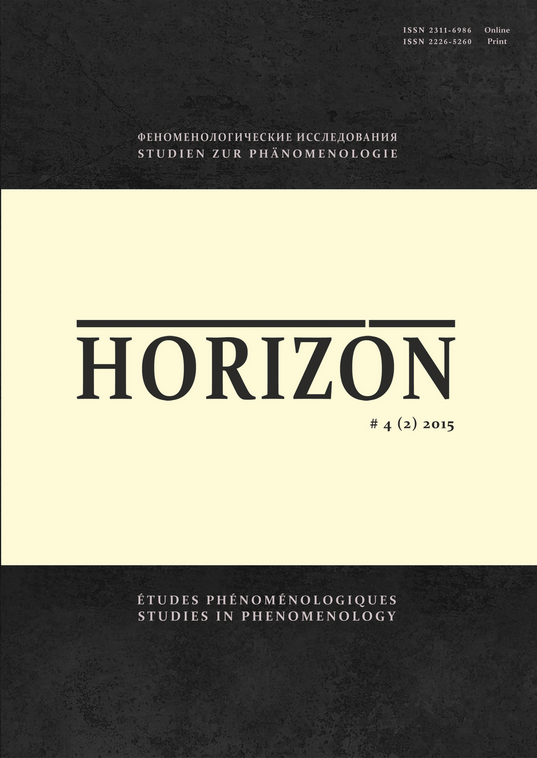TRANSZENDENTALE ERFAHRUNG ALS GEDANKLICHES EXPERIMENT
TRANSCENDENTAL EXPERIENCE AS A THOUGHT EXPERIMENT
Author(s): ALEXEI KRIOUKOVSubject(s): German Idealism, Phenomenology
Published by: Издательство Санкт-Петербургского государственного университета
Keywords: Phenomenology of Husserl; German Idealism; Fichte; eidetic variation; transcendental ego; transcendental reduction
Summary/Abstract: In my article I would like to discuss a topic concerning the idea of mental experience as anexperiment in the transcendental philosophy. One of the main problems of the humanities is that onecan see a big difference between two branches of knowledge: human sciences and «exact» sciences.The main difference consists in the fact that the experimental data of the exact sciences can beverified by other researchers, but mental data in the mind of one researcher in humanities cannot berepeated in the mind of another. It allows for the skeptics to say that human sciences and especiallyphilosophy cannot be real sciences. In opposition to this, the contemporary German philosopherLambert Wiesing asserts that in the field of transcendental philosophy we do have something similarto experience in experimental sciences. It is called the «eidetic variation» (eidetische Variation).Three principles of the method are of great value. They are: self-reflection, phantasy, and selfclarification.In my article I am going firstly to clarify the principles of «eidetic variation» inHusserl’s phenomenology, and secondly to relate this to the methods found in German transcendentalIdealism. I see three interpretations of the term «eidetic variation»: as a synonym of thetranscendental reduction, as establishing the eidos of a thing and the transcendental ego itself, and assomething that can be held in a phantasy. The same method is used in German idealism (by Fichte forexample). The main outcome of my paper should be, that if we ac-cept an «eidetic variation» as atranscendental method, we can explain, or at least have an opportunity to build the abstract categoryand understand such abstract items as beauty as well as other general philosophical notions.
Journal: Horizon. Феноменологические исследования
- Issue Year: 4/2015
- Issue No: 2
- Page Range: 54-62
- Page Count: 9
- Language: German

